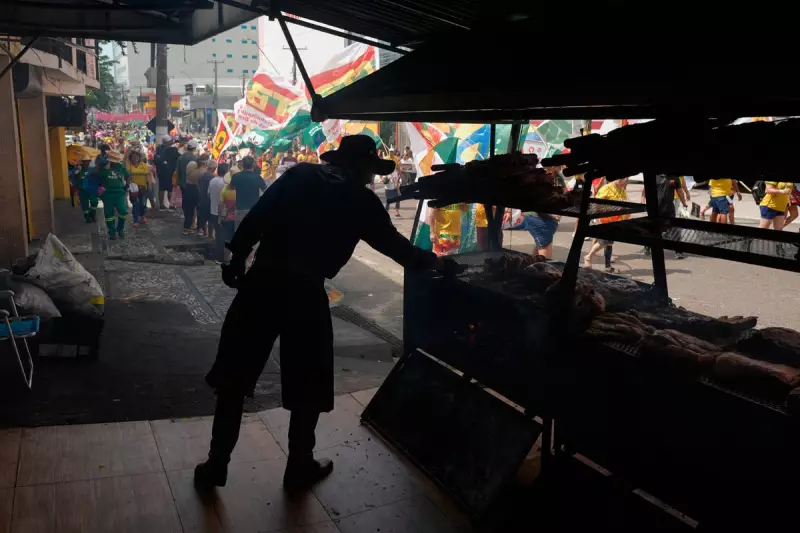
COP30 Clash: The Battle Over Our Food System's Future
At the United Nations COP30 climate conference in Brazil, a significant conflict is unfolding over the future of global agriculture. With the Brazilian Amazon's deforestation crisis as a stark backdrop, activists, scientists, and government leaders are demanding that more be done to transform the world's food system, which is a major driver of planet-warming emissions.
The Protest Against Big Ag
The tension was palpable as protesters gathered outside a new, industry-sponsored pavilion called the "AgriZone." Their demonstration stood in direct opposition to the hundreds of lobbyists for large agriculture companies who are attending the talks, calling instead for a transition towards a grassroots, sustainable food system.
This conflict highlights a critical gap in the global climate response. According to the U.N.'s Food and Agriculture Organization (FAO), agriculture contributes about a third of global emissions. Despite this, the vast majority of climate finance is directed towards other sectors.
Kaveh Zahedi, director of the FAO's Office of Climate Change, Biodiversity and Environment, emphasised the complexity of the issue. "All the countries are coming together. I don’t think we can impose on them one specific worldview," he stated, acknowledging the lack of a single, universal solution.
AgriZone: An Alternative Vision or Greenwashing?
Within the temporary world built for COP30, the AgriZone presented itself as an alternative universe for agriculture. It featured immersive videos, exhibits with live plants, and food products. A key attraction was a research farm built by Embrapa, Brazil's national agricultural research corporation, showcasing what they term "low-carbon farming methods."
These methods included techniques for raising cattle and growing crops like corn and soy, as well as integrating cover crops and trees. Ana Euler, an executive director at Embrapa, argued that her industry holds vital solutions, especially for the Global South. "We need to be part of the discussions in terms of climate funds," she said. "We researchers, we speak loud, but nobody listens." The pavilion reportedly attracted about 2,000 visitors daily, including royalty and high-level officials.
However, this vision of reform exists alongside the substantial influence of industrial agriculture. The climate news site DeSmog reported that more than 300 industrial agriculture lobbyists are registered at COP30, raising questions about whose voice is truly being heard.
A Call for Ancestral Knowledge and Equity
In the face of this corporate presence, activists are amplifying the voices of those most affected by the climate crisis. At a protest on a humid evening, Pang Delgra of the Asian People’s Movement on Debt and Development stated that the real power lies not with smallholder farmers or peasants, but with "industrial agriculture and corporate lobbyists that are shifting the narrative inside COPs."
Indigenous leaders also pushed for recognition of their ancestral knowledge. Sara Omi, from the Embera people of Panama, called for a decolonisation of thought regarding food systems. "The agro-industrial systems are not the solution," she asserted. "The solution is our own ancestral systems that we maintain as Indigenous peoples."
The debate also touches on the nuanced reality of global diets. While research indicates a plant-based diet is often better for the planet, many people in poverty rely on animal protein for survival. Conversely, those in higher-income nations, who have more dietary choices, tend to contribute more to climate change through their food consumption, underscoring the need for equitable and context-specific solutions.





